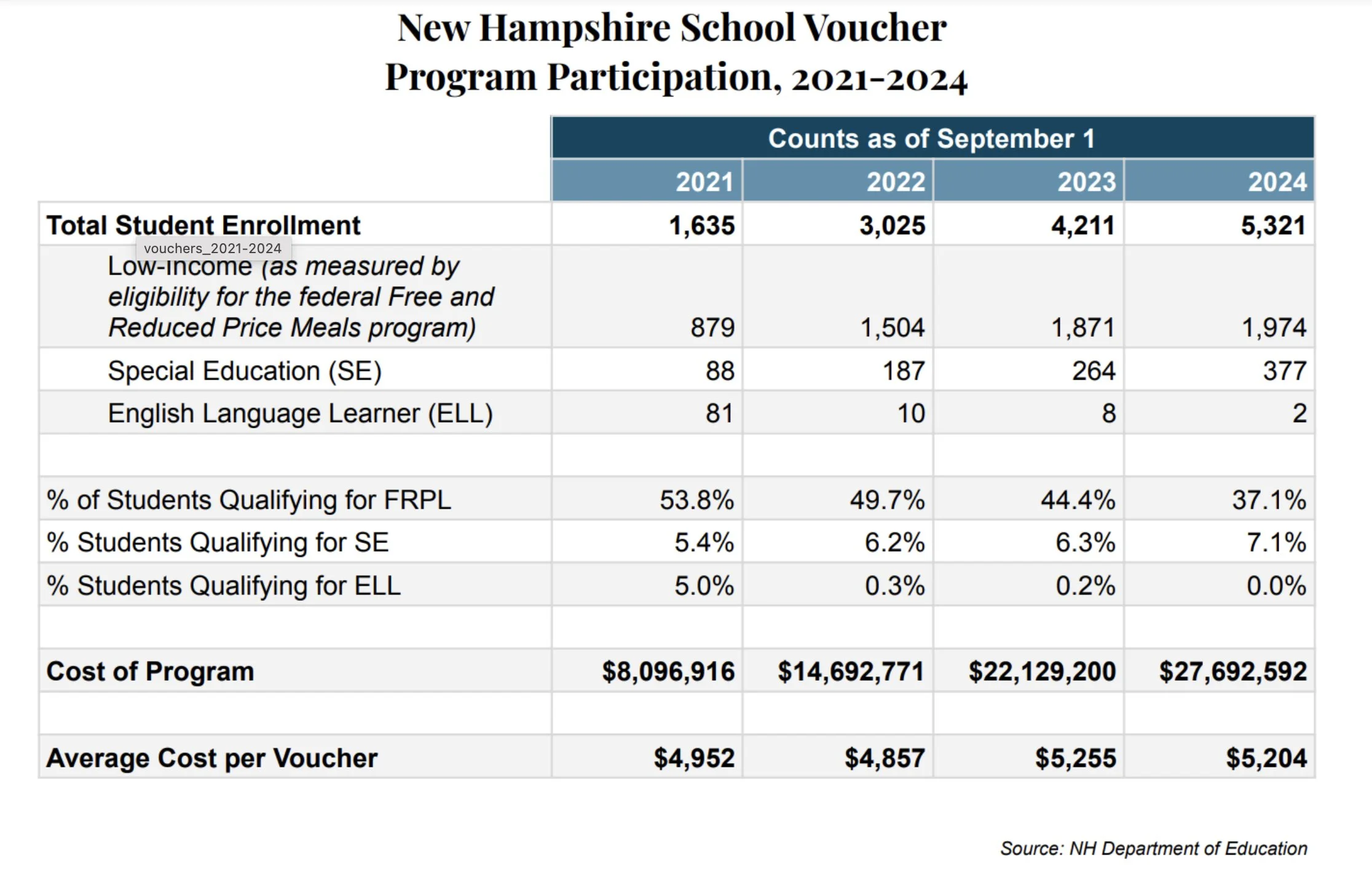Analysis of state numbers shows proportion has dropped from 54% to 37% since 2021
By Susan Geier-Granite State News Collaborative
More New Hampshire families that don’t qualify as low-income are receiving publicly funded school vouchers to pay for private, religious and homeschooling expenses through the state’s Education Freedom Account program.
The information, based on data from the New Hampshire Department of Education, shows enrollment in the school voucher program grew 25 percent since last school year. The state will now fund 5,321 school vouchers in the 2024-2025 school year, for a total estimated cost of $27.7 million for the year, according to an analysis by Reaching Higher NH, the nonprofit that studies education and education policy.
It's striking that the data shows proportionally fewer students receiving the vouchers are low-income, said Christina Pretorius, Reaching Higher’s public policy director.
In 2021, nearly 54 percent of the total student enrollment were low-income (879 students out of 1,635), Reaching Higher found. This year, 37 percent of students, or 1,974 out of 5,321 students, were low-income.
In its analysis, Reaching Higher measured low-income students as those eligible for participation in the Free and Reduced Price Meals Program.
The vouchers are given through the state’s Education Freedom Account program and funded through the state’s Education Trust Fund. To qualify for EFA money, a family household income may not exceed 300 percent of the poverty level. In 2021, that was $79,500 for a family of four, and now it is $93,600.
After that first year, families are not required to prove income eligibility while the child is in school up to the age of 20.
The EFA program has been subject to a strong partisan divide since a sole-source contract to manage the program and distribute the money was awarded to the New York-based Children’s Scholarship Fund in 2021. Democrats and others say it diverts essential public school funds, while Republicans and program supporters say it gives parents education choice.
The Children’s Scholarship Fund and details of the EFA program are not subject to the same level of accountability – financially and academically – as traditional public schools and public charter schools in the state.
“Every dollar spent on vouchers is money that is not being spent in district schools and public charter schools,” Pretorius said in an interview. “Year after year, we have bills to do things like increase special education funding that don’t succeed … but we have $28 million (this year) to give to school vouchers.”
Reaching Higher noted by the end of this school year, $73 million in school vouchers will have been distributed through the EFA program.
Gov. Chris Sununu and EFA proponents say the money is justified to give parents options beyond traditional public schools.
But, Pretorius said, other public programs, like Medicaid, WIC (the Women’s, Infants and Children food nutrition program), fuel assistance and free and reduced lunch, require annual income verification and are subject to public scrutiny. Recipients of EFA funds aren’t.
Sununu has said it would be disruptive if a family had to change schools because of a change in income, adding that public school students are not means-tested.
Pretorius also questioned whether families would actually withdraw from private, religious or homeschooling if their family went over the income limit.
“Between 70 and 80 percent of these (EFA) students had already been enrolled in homeschooling or private schools,” she said. “What we are seeing is the subsidizing of choices that were already made.”
Reaching Higher, Pretorius said, doesn’t support or oppose legislation and is focused on tracking public education policy and sharing how vouchers are being used in New Hampshire.
“We are not unique in this trend here in New Hampshire,” she said. “We are seeing across the country that wealthier families are receiving them, and there is a real lack of transparency and accountability on how they are being used.”
These articles are being shared by partners in the Granite State News Collaborative. For more information, visit collaborativenh.org.

